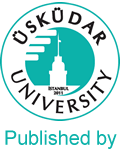Article
Makale
Karşılıklı Kurulan Güç İlişkileri İçin Wendt’in İnşacı Modelini Tekrar Gözden Geçirmek: Türk Dış Politikası Örneği
A Revised Model for Mutually Constituted Power Relations in Wendt’s Constructivism: The Case of Turkish Foreign Policy
ŞENOL Selin KARANA
Year 2017, Issue 4, Pages:11-51
Starting with 1990s, constructivism has become one of the mainstream theories of International Relations and made important contributions to the field. Among constructivists, Alexander Wendt has attracted highest attention by proposing possibility of finding a common ground between constructivism and realism. Is it possible to reconcile these two different perspectives? This paper attempts to reveal the conjunction point between realist and constructivist approaches through the discussion of Wendt’s constructivist ideas and realism. The argument follows that although actors shape each other’s identities and interests through mutual interactions as Wendt stipulates those who possess more power and capabilities shape the other actors, who have limited power and capabilities, more. To test this hypothesis, this paper analyses change in Turkish foreign policy towards Libya and Syria within the framework of the relationship between Turkey and the United States. These cases demonstrate how a superior power, the USA, can influence identity creation process of a weaker state, Turkey, as Turkey was driven to abandon “zero problem with neighbors” policy and peace–prone identity with the influence of the USA since 2011.
1990’larla birlikte İnşacılık Uluslararası İlişkiler alanında ana teorilerden biri haline geldi ve bu alana önemli katkılarda bulundu. İnşacı teorisyenler arasında Alexander Wendt inşacılık ve realizm arasında ortak bir zemin bulma çabasıyla en çok dikkat çeken teorisyen oldu. Bu birbirinden farklı iki teorik bakış açısının uyuşması mümkün müdür? Bu çalışma Wendt’in inşacı fikirleri ve realizm üzerinden tartışarak realist ve inşacı yaklaşımların ortak noktasını ortaya çıkartmayı hedeflemektedir. Wendt’in öngördüğü gibi aktörler birbirlerinin kimlik ve çıkarlarını karşılıklı etkileşimler sonucu biçimlendirseler de bu çalışma güç ve yetenekleri fazla olan aktörlerin güç ve yetenekleri kısıtlı olan aktörleri daha çok biçimlendirdiğini iddia etmektedir. Bu hipotezin test edilmesi için Türkiye’nin Libya ve Suriye ile olan ilişkilerindeki değişiklikler Türkiye–Amerika Birleşik Devletleri ilişkisi çerçevesinde analiz edilmektedir. Bu vakalar ABD’nin daha üstün bir güç olarak Türkiye’nin kimlik yaratma sürecini etkileyebildiğini ve bu etkiyle Türkiye’nin komşularla sıfır sorun politikasını ve barış odaklı kimliğini 2011’den bu yana bırakmak durumunda kaldığını göstermektedir.

